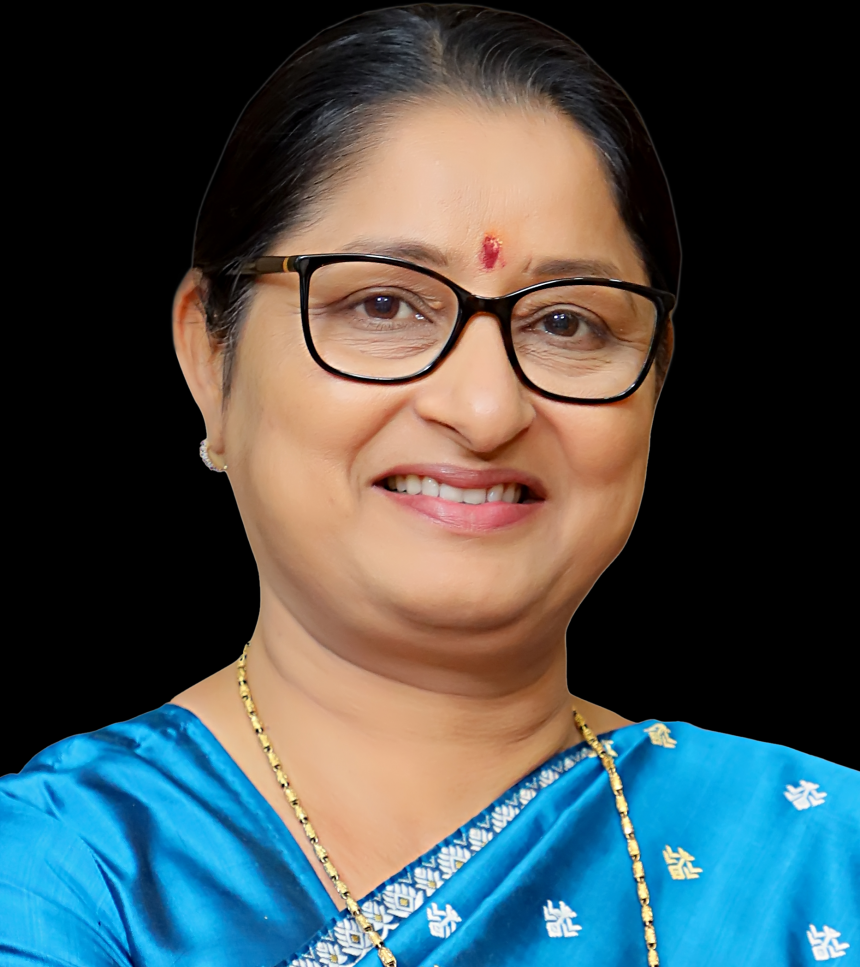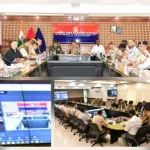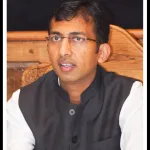EMPOWERING CHANGE
Empowerment begins with access—access to rights, to services, to protection, and to opportunity. Over the past decade, this access has been redefined and democratised through the focused commitment of the Modi Government to build a more inclusive and digitally empowered India.
The Ministry of Women and Child Development has been at the forefront of this transformation. Guided by the Hon’ble Prime Minister Shri Narendra Modi’s vision of Viksit Bharat @2047, the Ministry has systematically integrated technology into its programmes, ensuring that benefits reach the last mile swiftly, transparently, and efficiently.
We often say: “Empowered Women, Empowered India.” And empowerment must begin with access—access to rights, to services, to protection, and to opportunity. Today, that access is increasingly digital.
What was once aspirational is now operational—thanks to the Government’s emphasis on digital public infrastructure, real-time data systems, and responsive governance. With steadfast focus on care, protection, and empowerment, the Ministry has strengthened access to nutrition, education, legal safeguards, and essential entitlements—ensuring that women and children not only lead healthier, more secure lives but also emerge as confident leaders and change makers of Amrit Kaal.
As the Hon’ble Prime Minister rightly said, “I see technology as a means to empower and as a tool that bridges the distance between hope and opportunity.” This ethos has guided our transition from manual processes to real-time dashboards, from fragmented schemes to integrated platforms.
A cornerstone of this transformation is the Saksham Anganwadi initiative. Designed to modernise and empower over 2 lakh Anganwadi Centres across India, it represents the next generation of early childhood care and development. These centres are being upgraded with smart infrastructure, digital devices, and innovative learning tools—enabling more effective delivery of nutrition, healthcare, and pre-school education services.
The integration of services provided by 14 lakh Anganwadi Centres across the nation with the Poshan Tracker has enabled real-time data entry, performance monitoring, and evidence-based policy interventions. By equipping Anganwadi workers with smartphones and comprehensive training, the initiative ensures quality service delivery at the last mile. This marks a decisive shift from the manual record-keeping and data blind spots that existed before 2014.A decade ago, the ICDS system was weighed down by fragmented data, delayed responses, and lack of real-time tracking. The Poshan Tracker has transformed this landscape—ushering in precision, efficiency, and accountability in nutrition service delivery.
Over 10.14 crore beneficiaries—including pregnant women, lactating mothers, children under six, and adolescent girls—are now registered on the platform. By enabling real-time updates on growth monitoring and supplementary nutrition delivery, it ensures timely interventions and evidence-based policymaking.At its core, the Poshan Tracker is driving the national vision of a Swasth Bharat, Suposhit Bharat—reimagining Anganwadi Centres as digitally empowered community hubs bridging the urban-rural divide.Recognised with the Prime Minister’s Award for Excellence in Public Administration (2025), the platform also supports ‘Poshan Bhi Padhai Bhi’, providing digital training modules to Anganwadi workers for early childhood education—fostering holistic care in the Amrit Kaal of Viksit Bharat.
To further strengthen transparency and reduce leakages in the Supplementary Nutrition Programme (SNP), a Facial Recognition System has been introduced. This ensures that only eligible beneficiaries receive nutrition support, transforming the delivery mechanism into one that is secure, accurate, and dignified.
Beyond nutrition, the Ministry is ensuring safety and support for women through technology-led platforms. The SHe-Box portal provides single-window access to every woman, irrespective of her employment status or whether she works in the organised or unorganised, private or public sector, to lodge, complaints under the POSH Act – enabling online redressal and tracking.
Meanwhile, the Mission Shakti Dashboard and Mobile App provide integrated assistance to women in distress, connecting them to the nearest One Stop Centre—now operational in nearly every district. These interventions exemplify how technology is being used not just for efficiency, but for justice, dignity, and empowerment.
A decade ago, maternity benefits were difficult to monitor and faced delays. The Modi Government has operationalised the Pradhan Mantri Matru Vandana Yojana (PMMVY)—a game changer in maternal welfare. Under the PMMVY Rules, 2022, pregnant women receive Rs 5,000 for their first child.
Under Mission Shakti, the benefit extends to Rs 6,000 if the second child is a girl—promoting positive reinforcement for daughters. Delivered through a paperless Direct Benefit Transfer (DBT) system, more than Rs 1,9000 crore has reached over 4 crore women beneficiaries since inception.
PMMVY is a fully digital programme—leveraging Aadhaar-based authentication, mobile-based registration, doorstep assistance from Anganwadi /ASHA workers, and real-time dashboards. A dedicated grievance redressal module and citizen-facing portal ensure transparency, trust, and accountability—strengthening the Government’s commitment to Beti Bachao, Beti Padhao.
These targeted efforts are delivering tangible outcomes. The latest reports from Health Management Information System (HMIS) of Ministry of Health & Family Welfare (MoHFW) reveal that Sex ratio at Birth (SRB) has increased from 918 (2014-15) to 930 (2023-24) with a net positive change of 12 points. The Maternal Mortality Rate has declined to 97 per 1000 births (2018-20) from 130 per 1000 births (2014-16)—underscoring the positive impact of sustained efforts over the past decade of our government.
Every child deserves a nurturing, safe, and secure environment. In recent years, digital transformation has played a key role in child protection and welfare. Under the Juvenile Justice Act, the Ministry has strengthened the adoption ecosystem through the CARINGS portal (Child Adoption Resource Information and Guidance System). This digital interface ensures a more transparent, accessible, and efficient adoption process.
Digitisation has also improved monitoring of Child Care Institutions, foster care placements, and statutory support structures under the JJ Act. Platforms developed by the National Commission for Protection of Child Rights (NCPCR) are actively tracking violations of child rights. Meanwhile, the Mission Vatsalya dashboard strengthens convergence and coordination among various child welfare stakeholders.
This is New India—where governance meets technology, and where policy meets purpose. In the past decade, under the dynamic leadership of Hon’ble Prime Minister Narendra Modi, the Ministry of Women and Child Development has not only adapted to digital change—it has championed it.
As we move forward in the Amrit Kaal, the Ministry will continue to lead from the front, ensuring that every woman and every child becomes a partner in nation-building. Through technology, transparency, and targeted action, we are building a future where empowerment is not a slogan—but a lived reality for every Indian.
(The Author is Union Minister for Women and Child Development, Govt of India. Courtesy: PIB)








